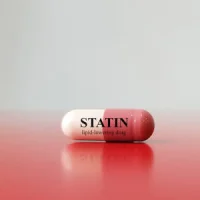Cancer and cardiovascular disease are the two leading causes of mortality. They are also leading contributors to increasing healthcare costs for both healthcare systems and patients.
Financial toxicity is a well-known side effect of the high costs associated with cancer care. However, in recent years, clinical studies have suggested that patients suffering from atherosclerotic cardiovascular disease (ASCVD) also experience significant financial distress. Over the years, there has been an emphasis on understanding financial toxicity in patients with cancer, but very little attention has been paid to study the same phenomenon in patients with ASCVD.
Findings from a new study suggest that cardiovascular disease is associated with greater financial toxicity compared to cancer. The study also shows that the level of financial distress is much worse for those with both diagnoses.
Researchers analysed data on 141,286 adults with self-reported ASCVD, including coronary or cerebrovascular disease and/or cancer. Patients were between the ages of 18 to 65 years. Six thousand ninety-three patients had ASCVD, while 6887 patients had cancer. Among the total patients analysed, 127,875 patients neither had cancer nor ASCVD, while 971 patients had both.
For the purpose of this study, financial toxicity was defined as high financial distress, difficulty paying medical bills, cost-related non-adherence to medications, food insecurity and delayed/forgone care due to financial constraints and high cost. The term can be used interchangeably with financial distress, financial hardship, economic hardship or economic burden.
Findings showed that financial toxicity was more prevalent among patients with ASCVD compared to those with cancer. Patients with ASCVD were more likely to have difficulty paying bills, be unable to pay bills, demonstrate non-adherence to medication due to cost, suffer from food insecurity and delay or forego medical care because of high cost. Researchers also observed that patients with both ASCVD and cancer were more likely to report these factors.
Researchers highlight the need to tackle financial toxicity in these patient populations, especially those who are more vulnerable and more likely to suffer from financial distress due to lower socioeconomic status, racial minority status or age.
Source: JACC: CardioOncology
Image Credit: iStock
References:
Valero-Elizondo J et al. (2021) Atherosclerotic Cardiovascular Disease, Cancer, and Financial Toxicity Among Adults in the United States. JACC: CardioOncology. 3(2):236-246.










